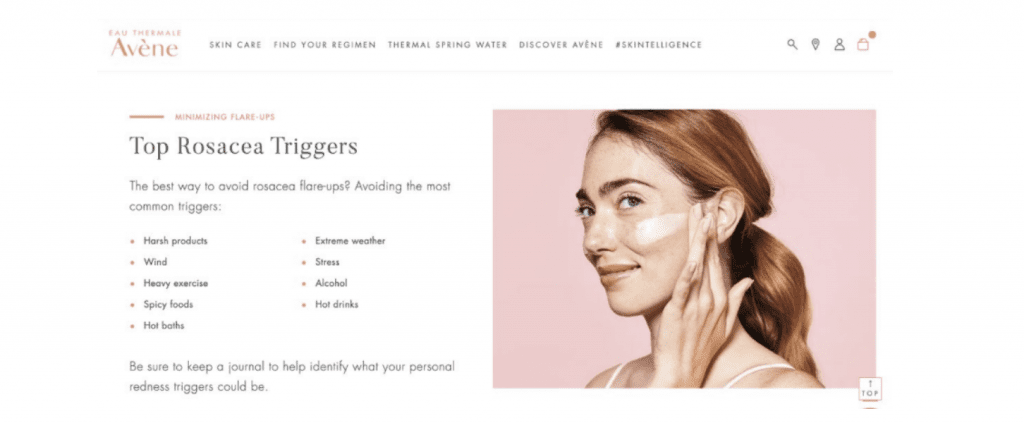This week, Amazon, Walmart, and Ulta escaped claims waged against them by model Patty Ratermann, who claimed that they – and beauty brand Pierre Fabre USA dba Avène – breached New York’s right of publicity law by using her image & likeness to promote Avène products without her authorization.
Some quick background: Ratermann alleges that she signed a single-use license with QuickFrame to use her likeness on Instagram, only to find that her likeness was being used to promote Avène products on the Avène website, as well as on Amazon, Walmart & Ulta’s sites and in a Walgreens store. She filed suit in Jan. 2022, accusing the defendants of violating her right to “privacy” and/or “publicity” under S. 50 and 51 of the NY Civil Rights Law, unfair competition, breach of contract & fraud.
Avène, Amazon, Walmart, Ulta & Walgreens filed a motion to dismiss, which SDNY Judge Jesse Furman said raised “a question of first impression,” namely, whether Amazon, Walmart & Ulta are immune to claims under NY Civil Rights Law S. 50 and 51 pursuant to Section 230 of the Communications Decency Act or whether an exception to S. 230 immunity applies.

In a Jan. 17 opinion and order, Judge Furman granted the motion with respect to Ratermann’s claims against Amazon, Walmart, Ulta & Walgreens, concluding that the retailers are shielded by S. 230, which provides immunity for website platforms with respect to third-party content. (S. 230 immunity doesn’t apply to “any law pertaining to IP.”)
The Kicker: “Because the gravamen of a claim under S. 50 and 51 is a violation of the right to privacy” – and not IP, the judge determined that the IP exception to S. 230 does not apply.
While Ratermann argued that S. 50 and 51 claims “are IP claims within the meaning of this provision,” Judge Furman stated that New York courts “have long construed S. 50 and 51 to provide a statutory right to privacy, not property,” and thus, found that the defendants – who argue that S. 50 and 51 establish a statutory right to privacy (not IP) – “have the better of the argument.”
A Takeaway: Reflecting on the SDNY’s decision, UNH Franklin Pierce School of Law professor Tiffany Li stated this week, “Unfortunately, copyright law might be the only recourse for someone seeking to protect their image from false online endorsements.”
In other litigation updates …
Bad Spaniels – The U.S. govt. is now among the many parties filing amicus briefs in favor of Jack Daniel’s in the Bad Spaniels case. In its brief, the U.S. takes issues with the Rogers test, arguing that the likelihood-of-confusion test “functions as a built-in mechanism to avoid any First Amendment concerns,” thereby, removing the need for Rogers. In Jack Daniel’s v. VIP Products, in particular, the govt. asserts that the 2nd Cir. erred in requiring Daniel’s to satisfy the “special threshold” Rogers test. Instead, Daniel’s claims “should be analyzed under the statutory likelihood-of-confusion standard, which is flexible enough to accommodate the distinct considerations” that may arise in trademark parody cases.
Getty v. Stability AI – Getty Images says that it commenced legal proceedings in the High Court of Justice in London this week against Stability AI, claiming that Stability AI “infringed intellectual property rights including copyright in content owned or represented by Getty.”
Robert Armijo v. Ozone Networks, et al. – A district court in Nevada determined that it does not have personal jurisdiction over Yuga Labs in an NFT-related negligence suit & that the economic loss doctrine bars the plaintiff’s claims against Ozone Networks dba Opensea.
Dickens v. Thinx, Inc. – Thinx has settled a PFAS lawsuit, accusing it of marketing its underwear as “safe, healthy and sustainable,” when “in reality, [it] contains harmful chemicals” for the purpose of “moisture-wicking” and “leak-resisting.” As part of the settlement, Thinx – which didn’t admit “guilt or wrongdoing” – will pay up to $5M and make some changes to its marketing & production processes.
And in a bit of deal-making – and prospective deal-making – news this week … Chinese fast fashion titan Shein is reportedly looking raise up to $3B at a reduced valuation of $64B, per Reuters. “The latest valuation would be nearly 36% less than the $100B the company was reportedly valued at in a funding round last year.”
Web3/digital fashion ventures continue to raise funds …
– SYKY – a “next generation luxury fashion platform” – raised $9.5M in a Series A round led by Alexis Ohanian’s Seven Seven Six w/ participation from Brevan Howard Digital, Leadout Capital, First Light Capital & Polygon Ventures.
– Digital fashion business House of Blueberry raised $6M in a seed round led by Makers Fund w/ “continued participation” from Everblue Management.